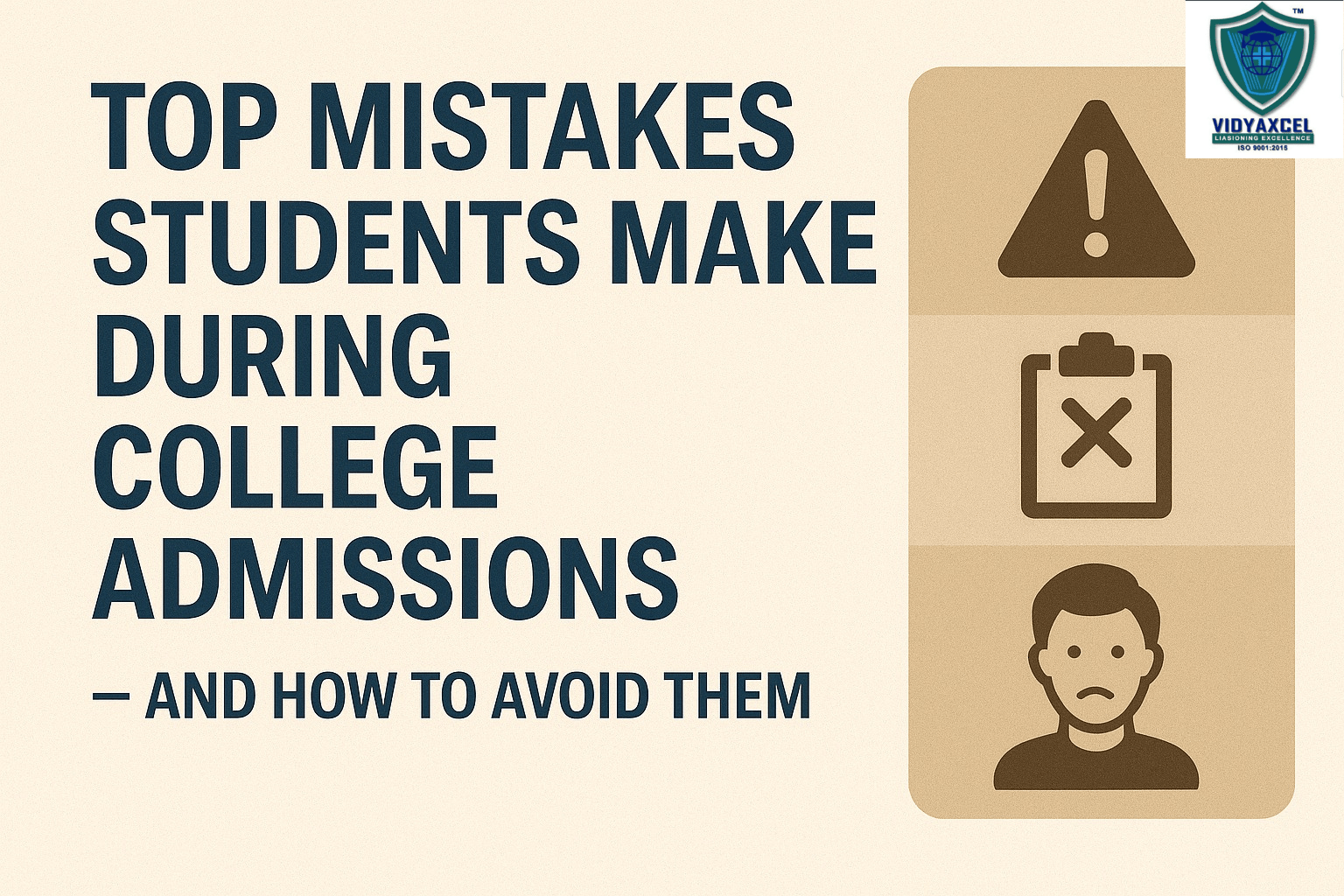Blog Details

28Jun
Gap Year After 12th – Smart Move or Risky Gamble?
The end of class 12 marks a significant turning point in every student’s life. It’s when dreams, expectations, and uncertainties collide. While many rush into college admissions, a growing number of students are pausing to ask: “Should I take a gap year?”
Once viewed with skepticism, taking a gap year—a break between high school and higher education—has gained popularity worldwide. In India, however, it's still a topic wrapped in confusion and concern. Parents worry about lost time, students fear falling behind, and society often perceives it as a sign of failure.
So, is taking a gap year a smart strategic move or a risky gamble? This article unpacks every facet of the debate to help students and parents make informed choices.
Why Students Consider a Gap Year
Before diving into the pros and cons, let’s understand why students choose to take a gap year in the first place:
-
Uncertainty about career goals
-
Poor exam performance or entrance test outcomes
-
Desire for travel or personal growth
-
Mental fatigue or burnout
-
Pursuit of competitive exams like NEET, JEE, UPSC, etc.
-
Lack of financial readiness
-
Wanting to build skills or gain work experience
Pros of Taking a Gap Year
1. Time for Self-Discovery
Most students complete school without a clear idea of what they want to pursue. A gap year allows them to explore different interests, passions, and aptitudes without the pressure of grades or peer competition.
2. Strategic Exam Preparation
Students who fall short in competitive exams often use the gap year to focus fully on retaking the tests—be it NEET, JEE, CLAT, CUET, or SAT. With the right planning, this can dramatically improve their chances of success.
3. Skill Building
A year off can be used to learn essential 21st-century skills like coding, public speaking, digital marketing, or foreign languages—skills that give a competitive edge in college and beyond.
4. Mental and Emotional Rejuvenation
After years of academic pressure, students often feel mentally exhausted. A structured break can help them reset, reduce anxiety, and return to academics with renewed motivation.
5. Better Career Decisions
With internships, volunteer work, or job shadowing, students can make better-informed decisions about their career paths, avoiding the all-too-common regret of wrong course selection.
Cons of Taking a Gap Year
1. Risk of Losing Academic Momentum
Stepping away from formal education may lead to a drop in study habits, discipline, or academic sharpness—especially if the year isn't well structured.
2. Peer Comparison and Societal Pressure
Seeing friends join colleges, post campus stories, and move ahead can make some gap-year students feel left out or demotivated.
3. Lack of Proper Planning
A gap year without goals can turn into wasted time. Without mentorship or guidance, students may drift, leading to regret later.
4. Financial Implications
In some cases, delaying education may affect long-term income or delay job entry, although this is often offset if the year is used wisely.
5. Misconceptions During Admissions
Some admission panels may question a gap unless it's justified with meaningful activities. Poor documentation or lack of clarity can harm future applications.
10 Productive Ways to Use a Gap Year
If you're taking a gap year, here's how to make it count:
1. Prepare for Entrance Exams
Focused coaching and self-study can boost performance in NEET, JEE, CUET, etc.
2. Take Online Certification Courses
Platforms like Coursera, Udemy, and edX offer industry-recognized courses in tech, business, design, and more.
3. Intern or Volunteer
Work in startups, NGOs, or shadow professionals to gain practical exposure.
4. Travel with a Purpose
Explore new cultures through exchange programs, educational trips, or volunteering abroad (e.g., with AIESEC or WWOOF).
5. Learn a New Language
A second or third language can be a great career asset and is often a requirement for studying abroad.
6. Work Freelance
Graphic design, content writing, tutoring—freelance gigs can build skills and earn income.
7. Develop a Passion Project
Start a blog, YouTube channel, app, or social initiative—this shows initiative and creativity in college/job applications.
8. Focus on Health and Wellness
Use the time to build fitness, address mental health, or practice meditation and yoga.
9. Join Bootcamps or Workshops
Short-term intensive programs in coding, entrepreneurship, or art can boost your confidence and skills.
10. Apply for Internships Abroad
Organizations like IAESTE and GoAbroad.com offer international internship placements for students.
Real-Life Case Studies
Case Study 1: Ananya – NEET Repeater to MBBS at AIIMS
Ananya took a gap year after failing to clear NEET. She joined a structured dropper batch, followed a strict routine, and practiced mindfulness to manage stress. One year later, she cracked NEET with top ranks and is now studying at AIIMS Bhopal.
ROI: One year = a lifetime of dream career
Case Study 2: Rohan – Career Confused to Game Designer
After 12th, Rohan was confused between engineering and design. He took a gap year, interned at a design studio, learned Blender and Unity, and finally joined a B.Des Game Design program. Today, he works for a gaming company in Canada.
ROI: A fulfilling career built on clarity and creativity
Case Study 3: Meera – Burnt Out to Back on Track
Meera felt mentally exhausted after board exams. With her parents' support, she took a gap year to focus on therapy, yoga, and painting. A year later, she joined a liberal arts college with full energy and confidence.
ROI: Personal well-being restored
Parental Perspective: Should You Support It?
Pros for Parents:
-
Gives your child time to mature emotionally
-
Helps avoid costly mistakes in college selection
-
Encourages real-world exposure and independence
Concerns Parents May Have:
-
Fear of child losing direction
-
Worries about social stigma
-
Concerns about academic delay
Tips for Parents:
-
Discuss clearly defined goals and timelines
-
Encourage documentation of activities
-
Stay involved but don’t micromanage
-
Seek mentorship or professional guidance if unsure
Psychological & Career Implications
Mental Health Impact
A well-structured gap year can significantly reduce anxiety, improve self-esteem, and offer emotional clarity. But a poorly managed one can increase feelings of isolation and self-doubt.
Career Impact
According to a study by the American Gap Association, students who took a gap year reported higher levels of motivation, academic performance, and clarity in their university experience.
Key Insight: It’s not the gap that matters—it’s how you fill it.
Professional Advice for Students Taking a Gap Year
-
Set Clear Goals – Define what you want to achieve: exam prep, skill learning, self-growth, etc.
-
Structure Your Time – Use planners, timetables, or digital calendars to avoid wasted months.
-
Create a Portfolio – Record every activity, certificate, course, or achievement to justify your gap year in future applications.
-
Stay Connected with Academia – Read, watch lectures, or attend workshops to keep your mind active.
-
Seek Mentorship – Career counselors, alumni, or even professionals can guide your path and keep you motivated.
Conclusion: Smart Move or Risky Gamble?
Taking a gap year after 12th can be a game-changing opportunity—but only when approached with planning, purpose, and discipline. It is not a decision to be taken lightly or made just to escape pressure.
A gap year filled with growth, learning, and reflection can lead to better career decisions, stronger college applications, and a more confident self.
So, is it a smart move or a risky gamble? The answer depends entirely on how you use that year.
FAQs
1. Will a gap year affect my college admission chances?
Not if you use it productively. Many universities, especially abroad, value gap years if they include skill-building, volunteering, or work experience.
2. How do I explain a gap year in interviews or college applications?
Be honest. Focus on what you did, what you learned, and how it contributed to your personal and academic growth.
3. What are some common mistakes students make during a gap year?
Lack of planning, wasting time on unproductive activities, poor documentation, and isolating themselves from academic circles.
4. Is it better to take a gap year in India or go abroad?
Both are fine. Going abroad can offer international exposure, but even in India, you can find volunteering, internship, and skill development opportunities that add value.
5. Can I earn money during a gap year?
Absolutely. Freelancing, part-time jobs, internships, or even starting a small business can help you earn and gain experience.
Our Office: West Bengal, Maharashtra & Delhi.
For More Infomation about admission in Medical, Engineering, Management & Study in Overseas Details.
View Current Study Overseas, Medical, Engineering & Management Admission Details Video.




